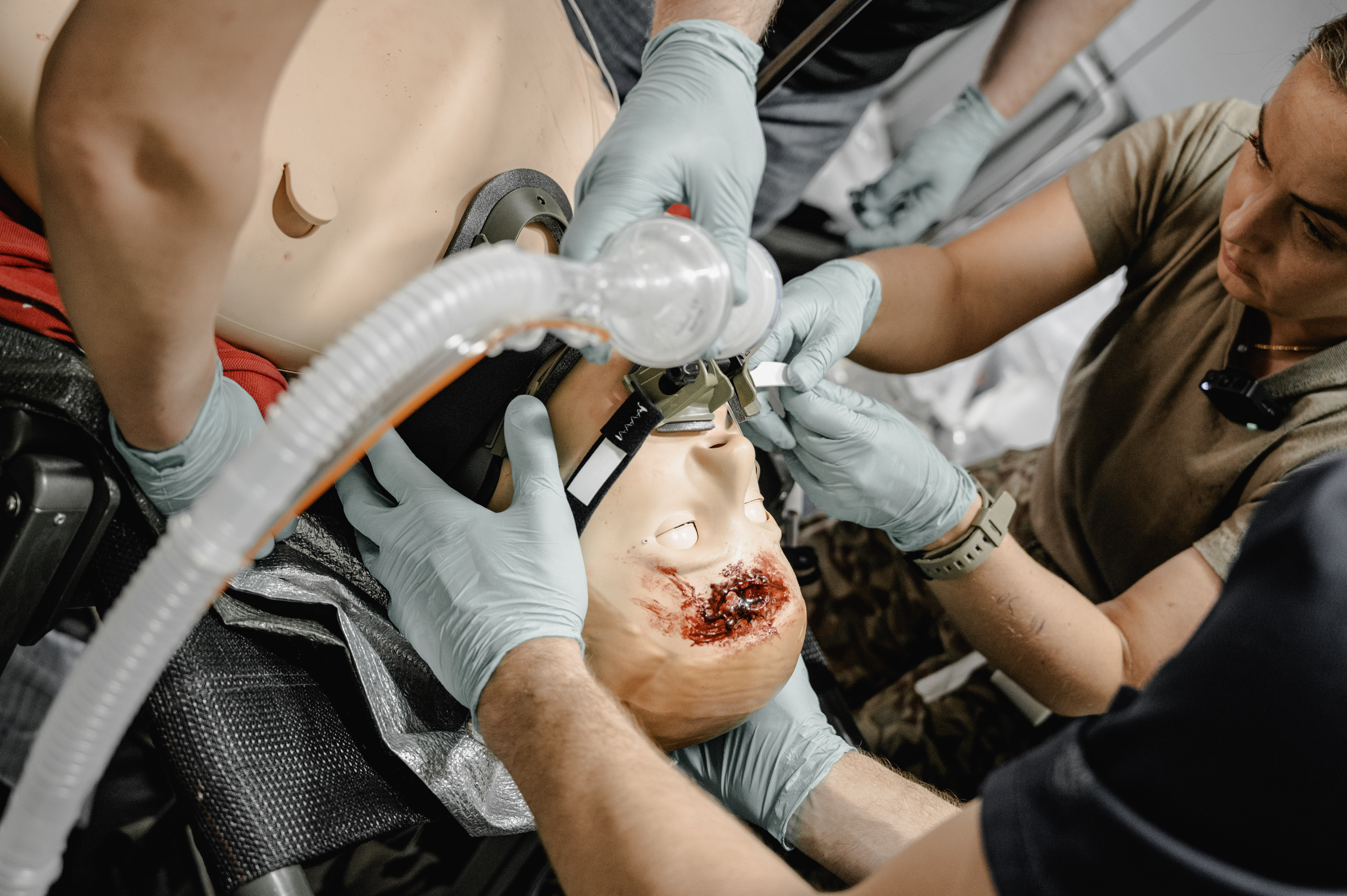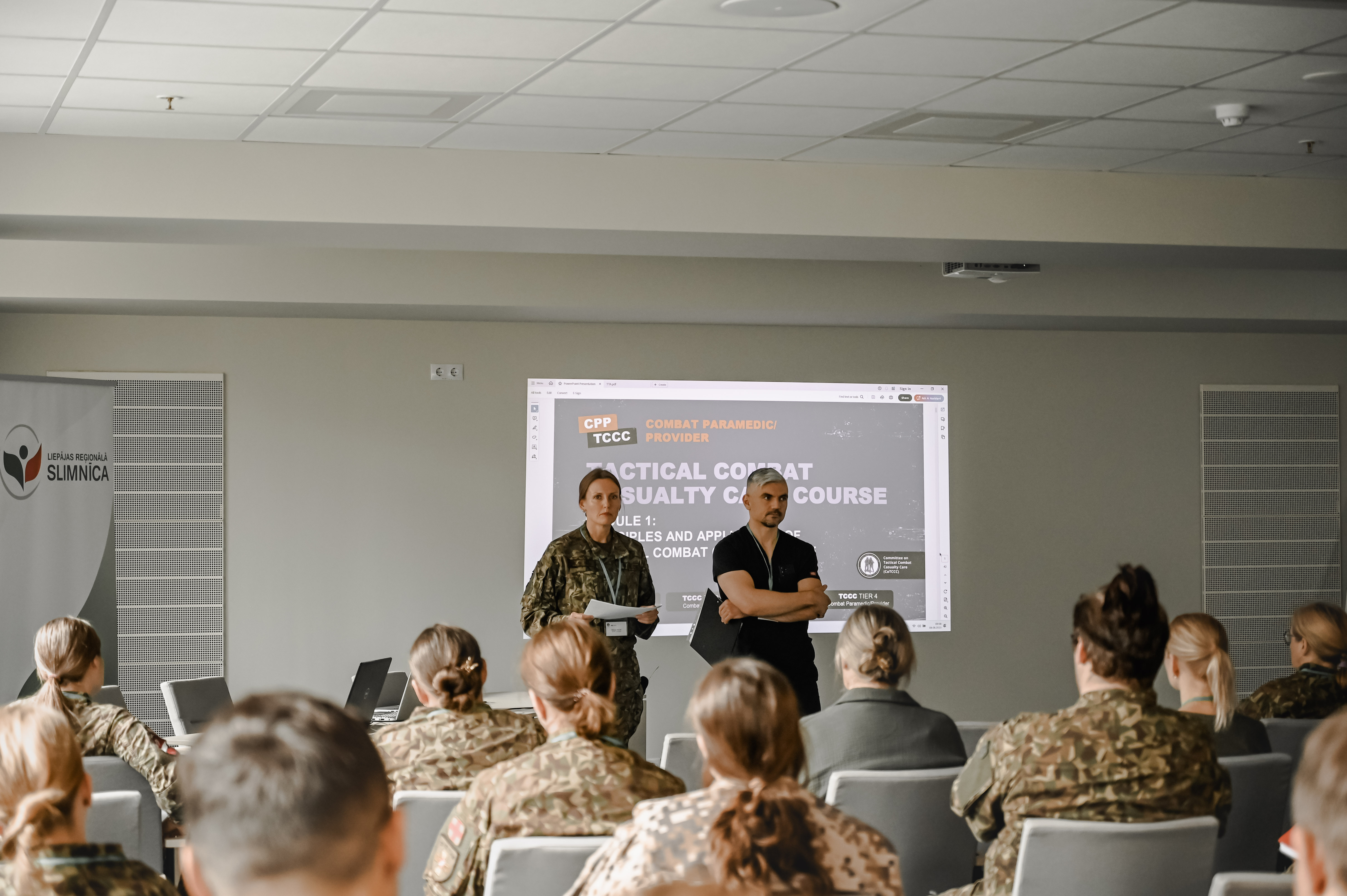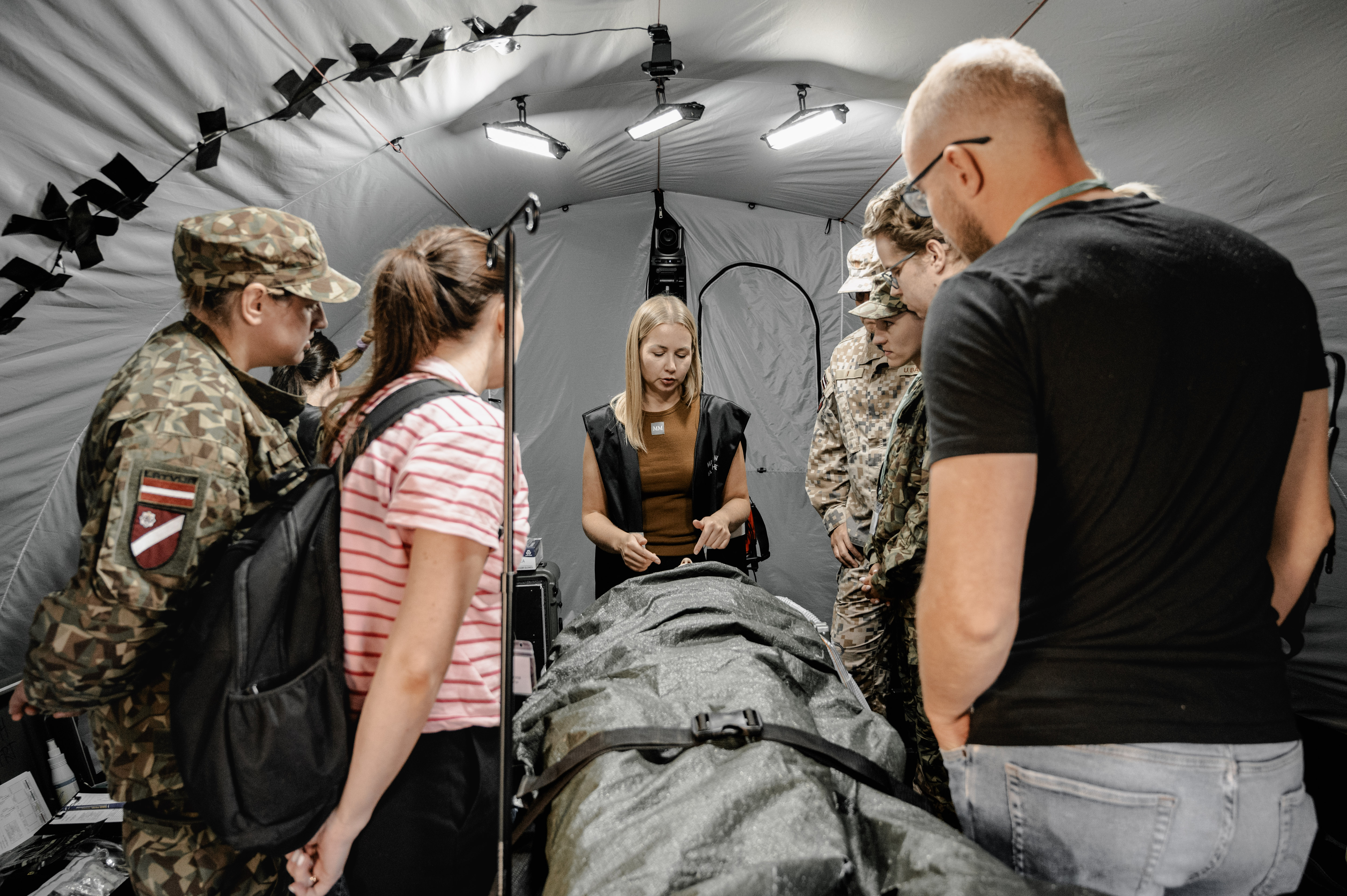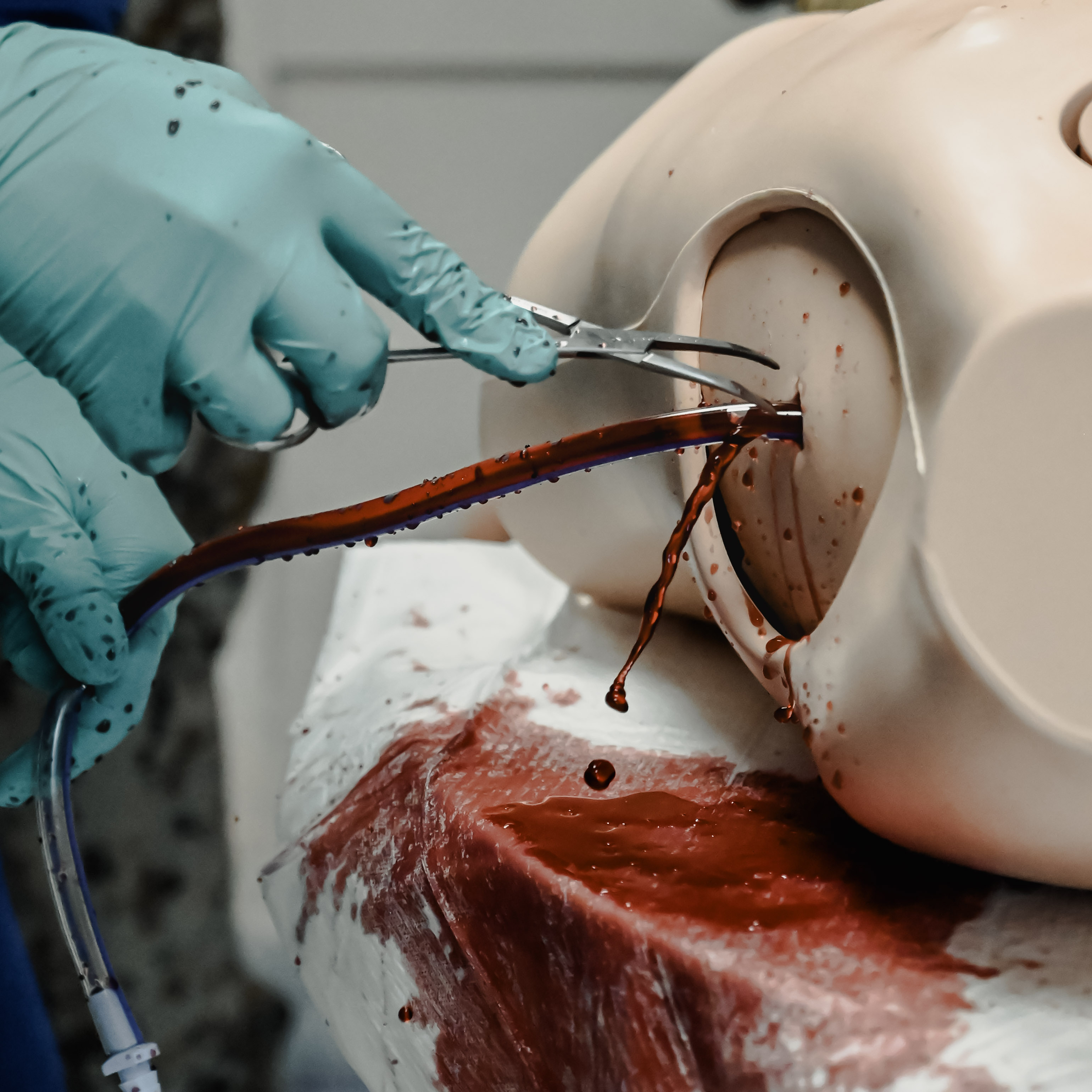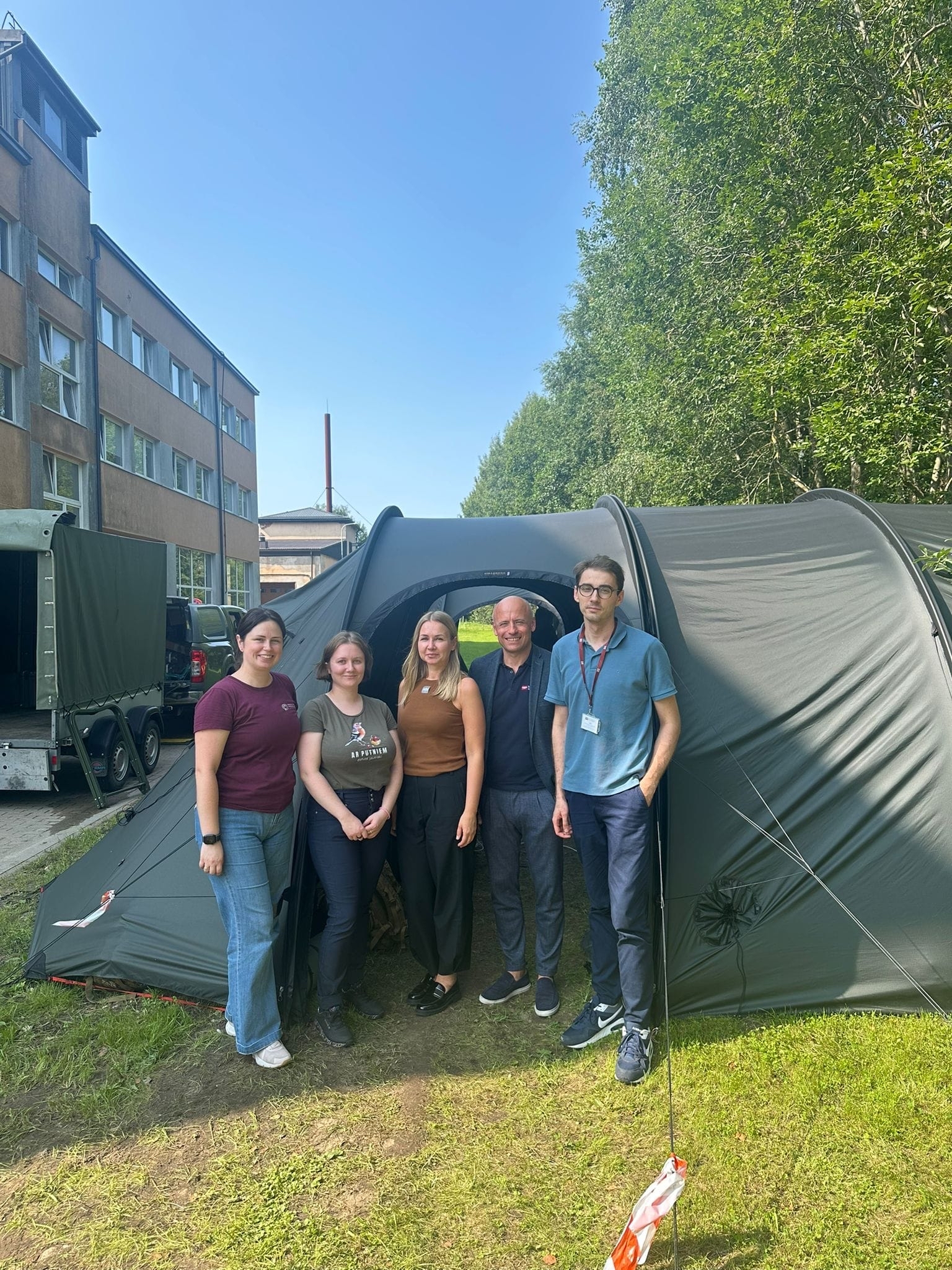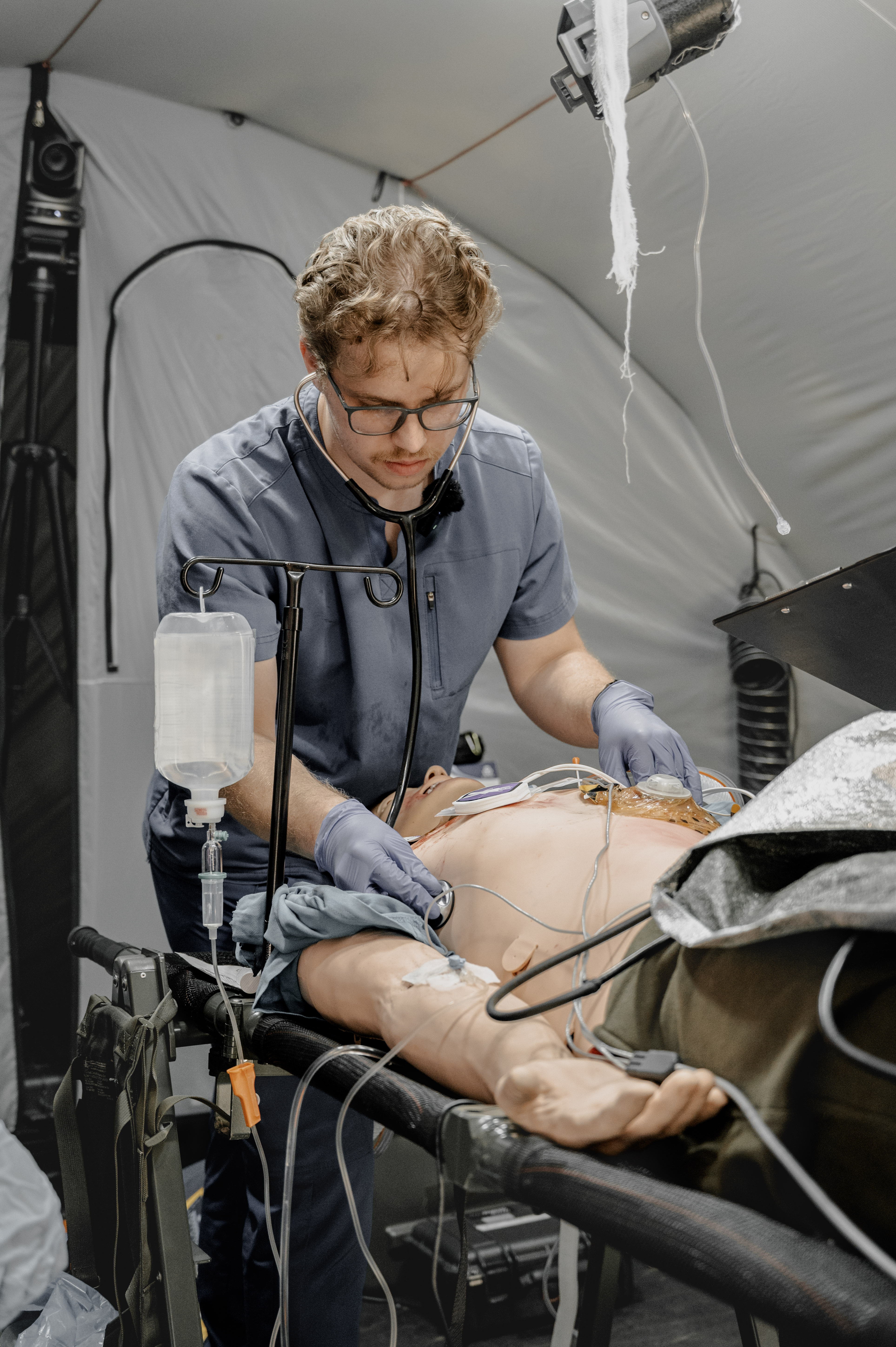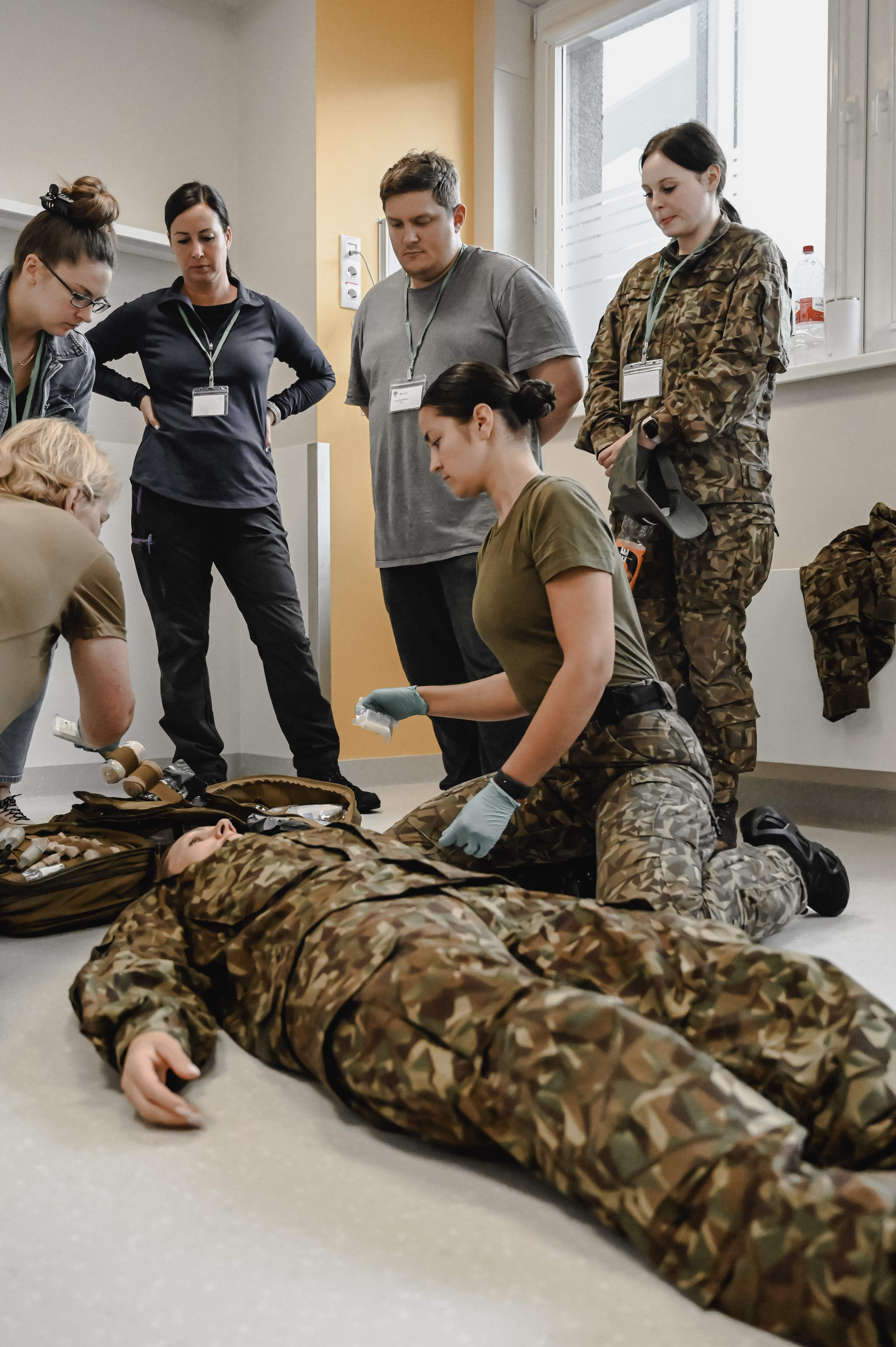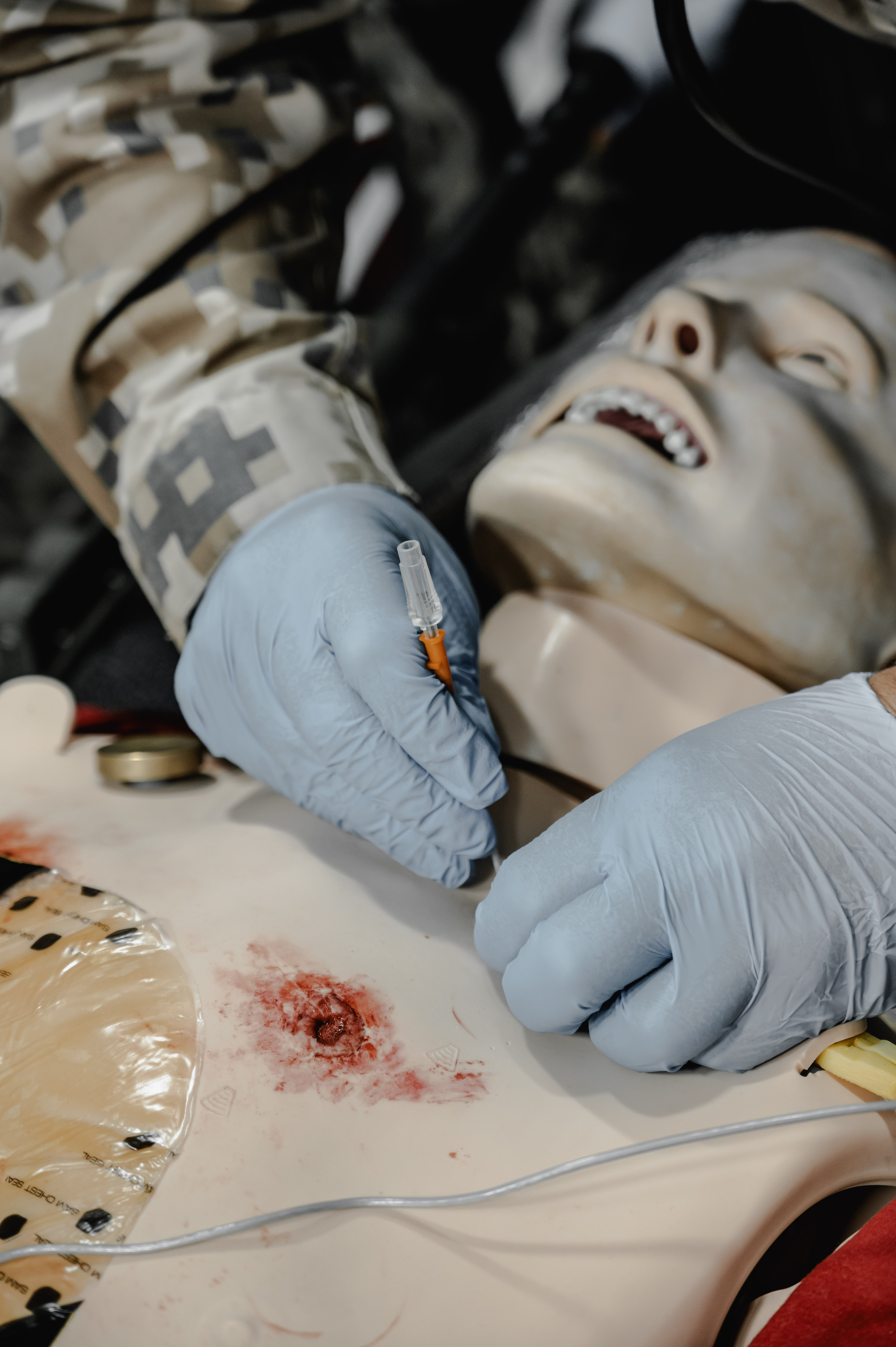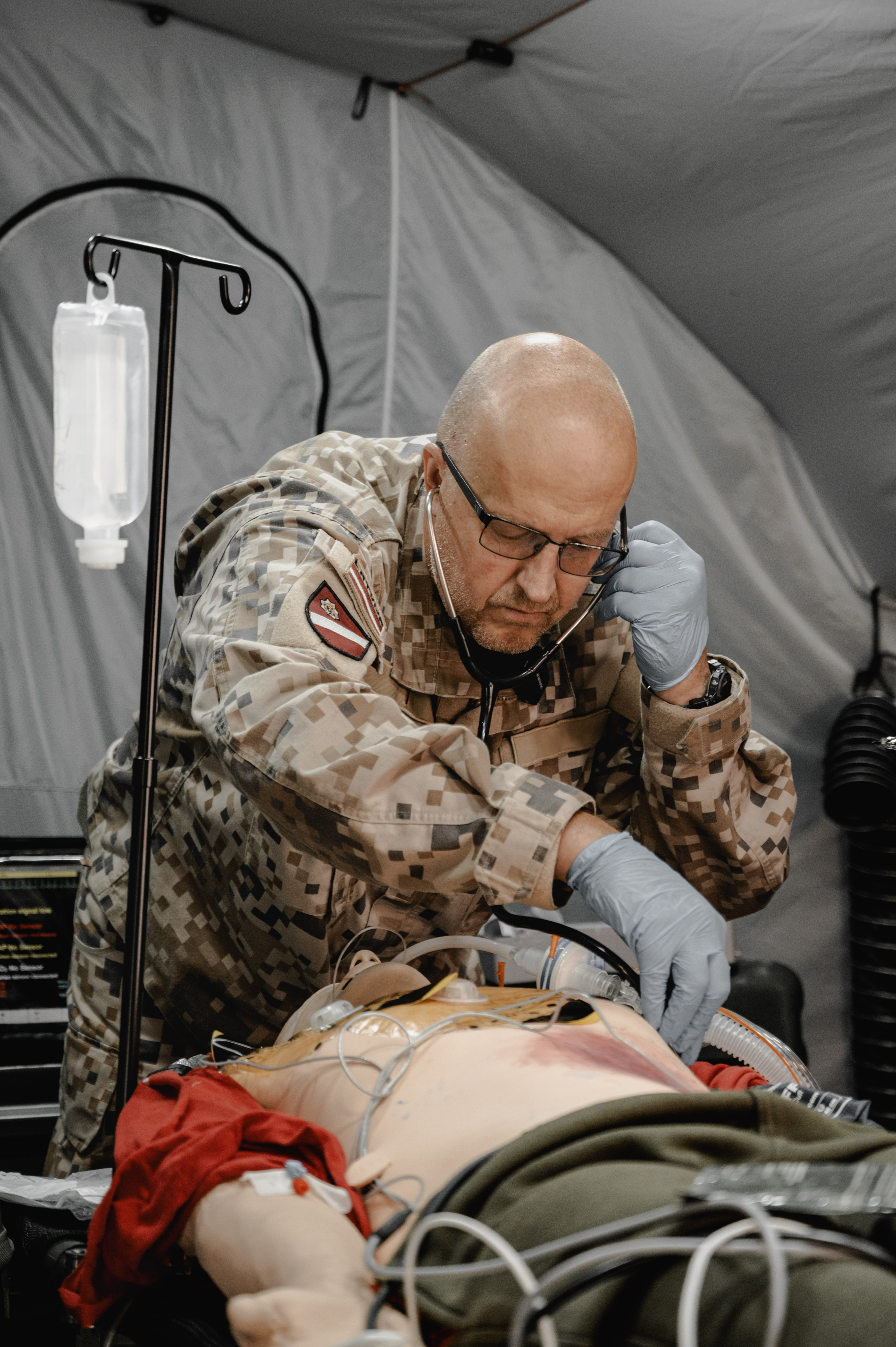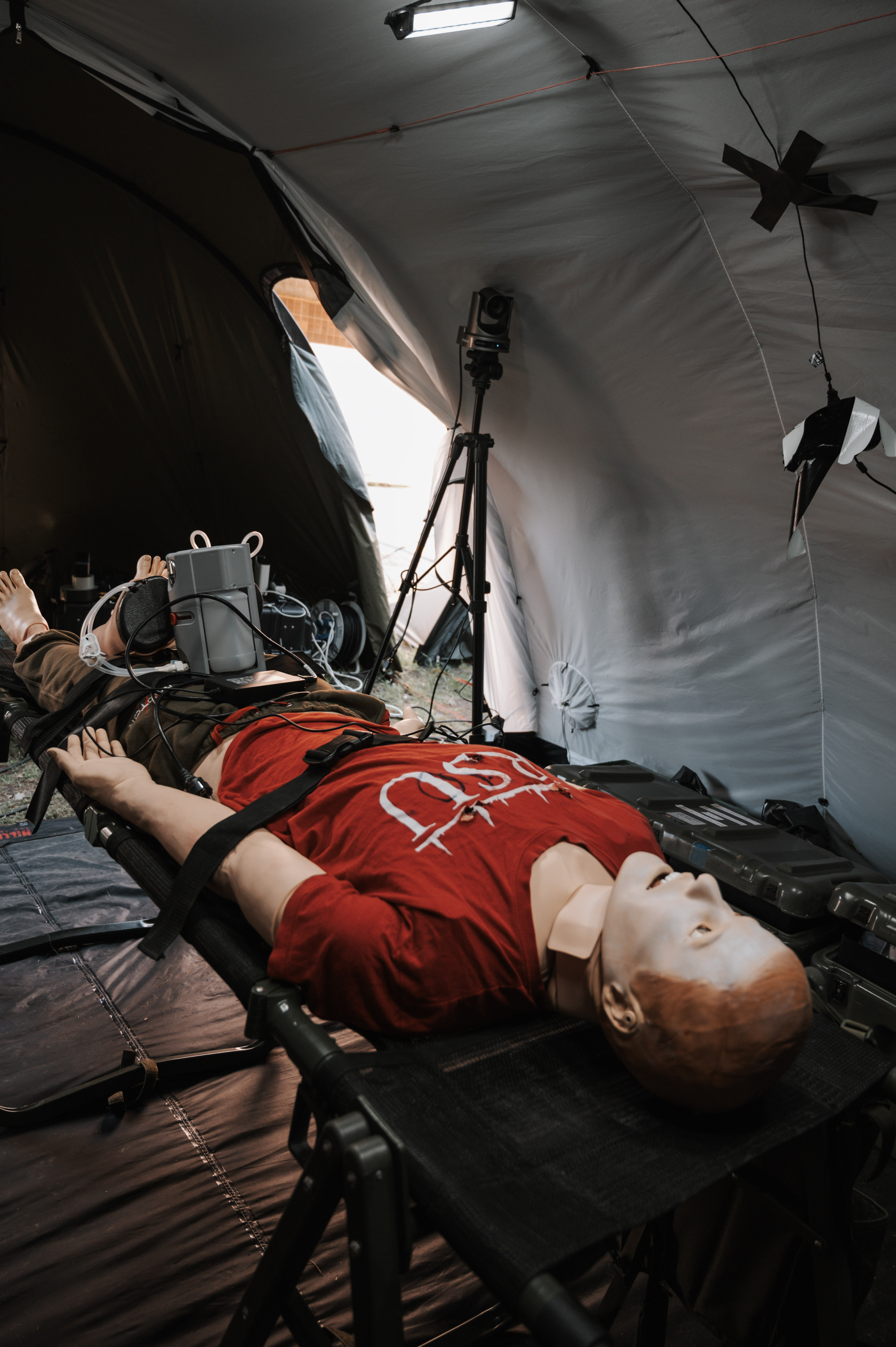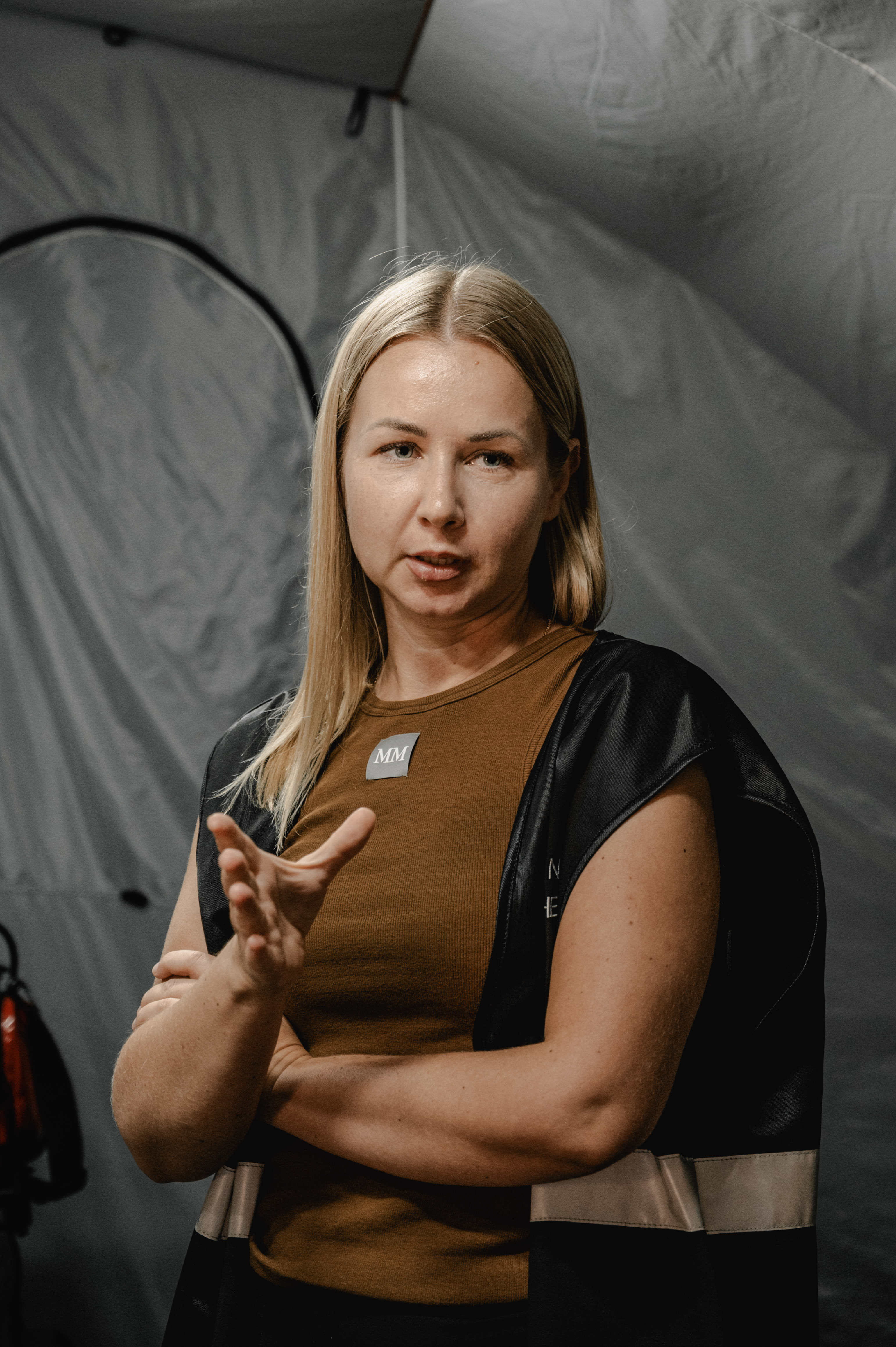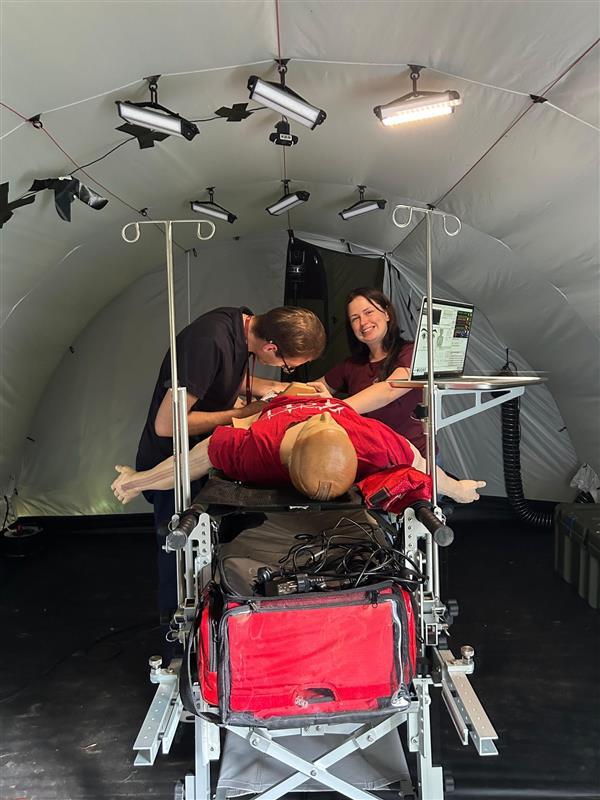RSU supports military medical exercise KURLAND 25
The Rīga Stradiņš University Medical Education Technology Centre (RSU METC) and representatives from the Department of Anaesthesiology, Intensive Care and Clinical Simulations participated in the military medical exercise KURLAND 25 organised by the Medical Unit of the 4th Kurzeme Brigade of the National Guard, taking place from 7 to 9 August, at the premises of Liepāja Regional Hospital and its surroundings.
The training was focused on strengthening cooperation between military and civilian medical personnel, with the main goal of improving preparedness and the ability to provide assistance to casualties in the very first minutes after an accident until the moment they are transported to the hospital. During the exercise, participants had the opportunity to improve their professional knowledge, perform various practical tasks, and reinforce action algorithms in order to improve their ability to respond quickly and accurately – which is crucial in saving lives.
As noted by Captain Marija Kraule, Chief Medical Officer of the Command Group of the Medical Unit of the 4th Kurzeme Brigade of the National Guard:‘Promoting cooperation between the civilian and military medical sectors is very important at the moment. We are satisfied with the results achieved during the training. We are also delighted to work hand in hand with the RSU Medical Education Technology Centre.
High-fidelity simulations allow us to practice combat casualty care skills and strengthen them at the level of muscle memory in a safe environment, without real danger.’
Similarly to the military exercise KURLAND 2023 and MEDEX-25 organised earlier by the 4th Kurzeme Brigade of the National Guard, also this time METC provided a simulation environment tailored to the specifics of the exercise. In addition, representatives of the RSU Department of Anaesthesiology, Intensive Care and Clinical Simulation, under the leadership of Assoc. Prof. Oļegs Sabeļņikovs, implemented simulation scenarios related to polytrauma treatment. It should be noted that Assoc. Prof. Oļegs Sabeļņikovs has completed the training programmes Tactical Combat Casualty Care (TCCC) and Major Incident Medical Management and Support (MIMMS) this spring, and the knowledge gained has helped to adapt both the content and the practical implementation aspects of the simulation scenarios to the specifics of civil-military simulation exercises.
Assoc. Prof. Oļegs Sabeļņikovs points out: ‘During KURLAND 25 exercise, we intended to recreate as realistically as possible the situations that medical personnel encounter in combat and major incident conditions – with multiple casualties, limited resources, and a high level of stress. Such simulations test not only professional knowledge, but also the ability to work in a team and make critical decisions within a limited time.
I am convinced that these exercises have increased and strengthened the confidence of professionals that it is possible to save lives even in the most complex situations.’
The recent exercise once again demonstrated the ability of the institutions involved to collaborate effectively and emphasised the importance of unity and coordinated action in crisis situations. These exercises not only strengthened the participants’ readiness to respond quickly and purposefully in emergencies but also enhanced individual and team performance in situations where time and accuracy are critical.
Related news
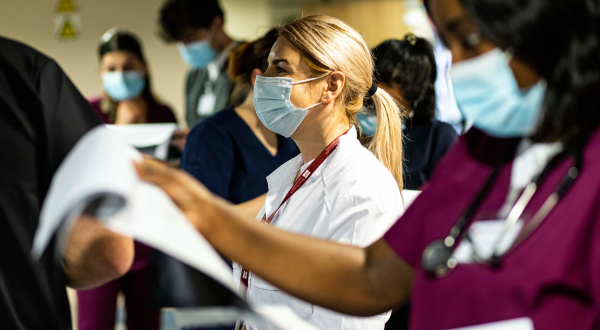 Learning from mistakes – RSU Faculty of Medicine launches reporting system to improve patient safety in clinical placementsAktualitātes
Learning from mistakes – RSU Faculty of Medicine launches reporting system to improve patient safety in clinical placementsAktualitātes
